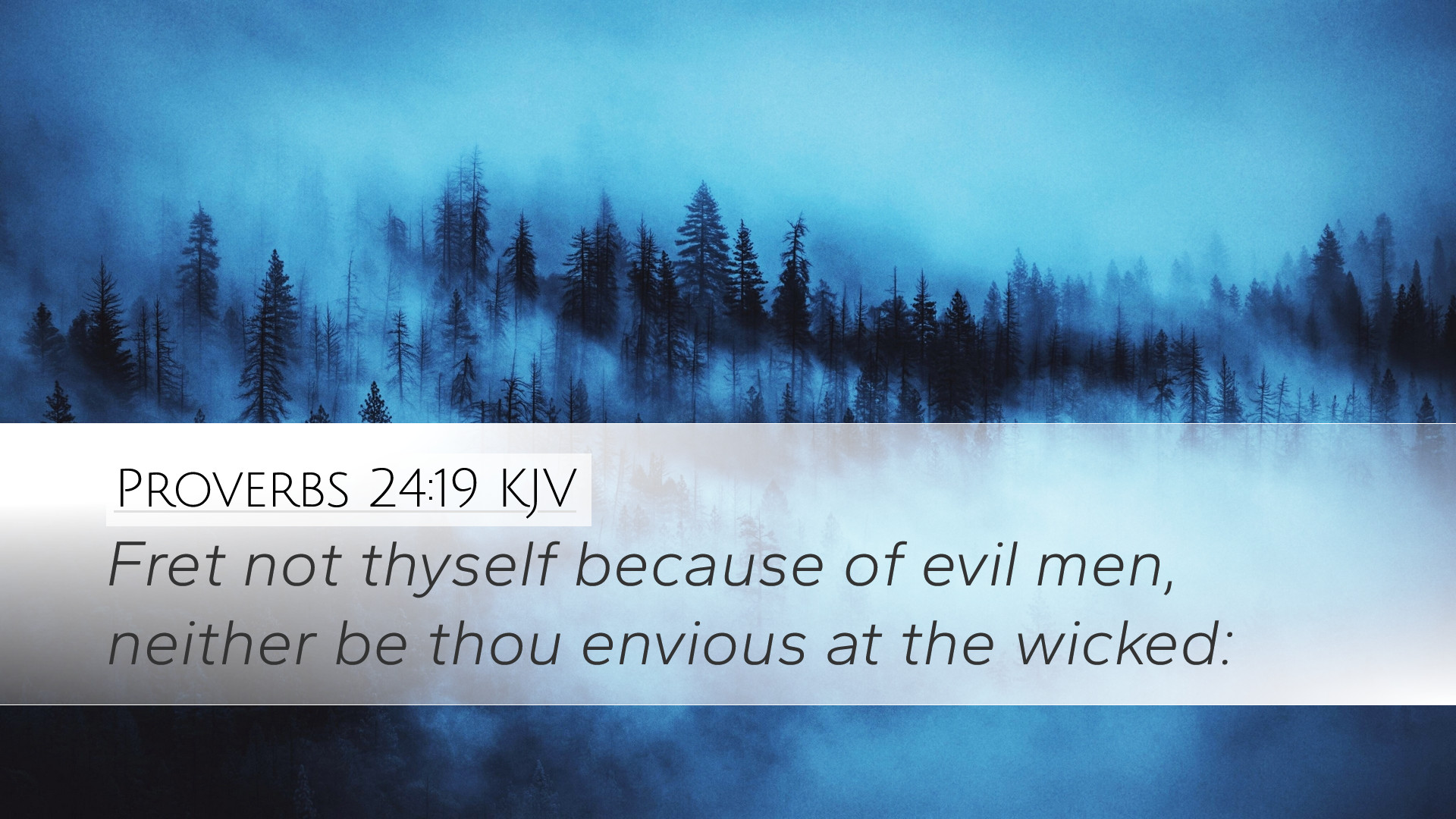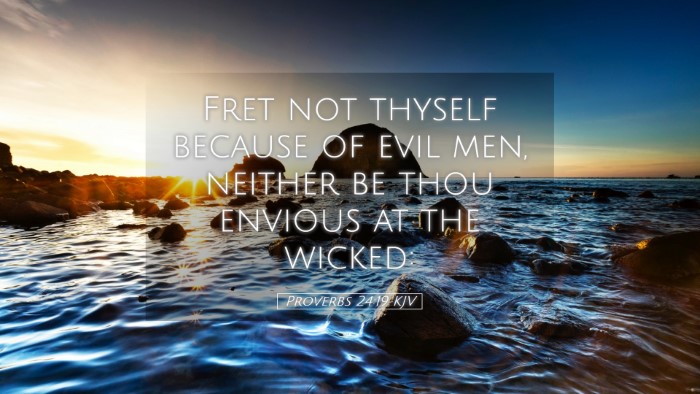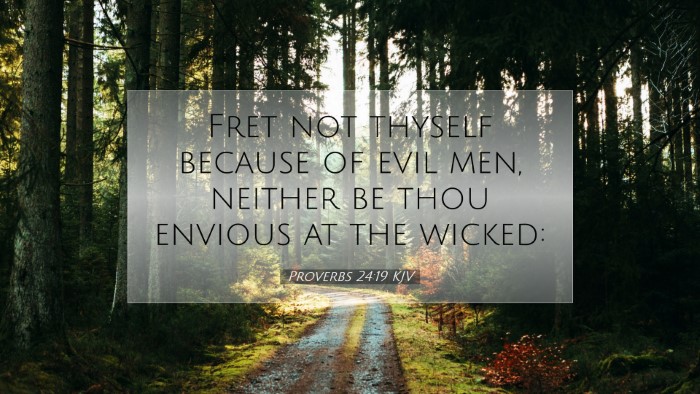Commentary on Proverbs 24:19
Verse: "Fret not thyself because of evil men, neither be thou envious at the wicked;"
Introduction
This verse from the Book of Proverbs serves as a poignant reminder to believers about the attitudes they should cultivate in relation to the prosperity of the wicked. The wisdom contained within these words resonates through time, touching upon themes of envy, fear, and the ultimate fate of the wicked.
Insights from Matthew Henry
Matthew Henry emphasizes that this verse confronts the natural human tendency to fret upon observing the success of those who act unrighteously. He notes that putting one’s trust in God amidst observing evil can lead to peace and tranquility.
- Fretting as a Sign of Distrust: Henry points out that anxiety about the prosperity of evil men reveals a lack of faith in God’s justice. Believers are reminded that God's providential care transcends the apparent flourishing of wickedness.
- The Temporary Triumph of the Wicked: He notes that this verse encourages believers to maintain a heavenly perspective, understanding that the 'victories' of the wicked are fleeting. Ultimately, their end is destruction, and one should not pine after their transient success.
Insights from Albert Barnes
Albert Barnes provides a broader context of the phrase "fret not". In his commentary, Barnes suggests that the term conveys more than mere frustration, but rather a deep-seated worry that can lead to discontentment and spiritual turmoil.
- Call to Focus on Righteousness: Barnes argues that believers are called to steer their thoughts toward righteousness and justice, rather than dwelling on the success of antagonists. He cites the importance of prioritizing one’s spiritual health above the materialistic gains of the ungodly.
- The Consequence of Envy: Barnes warns of the corrosive nature of envy, which can erode faith and lead believers astray. This verse serves as a vital reminder to celebrate God's righteousness instead of coveting the prosperity of others.
Insights from Adam Clarke
Adam Clarke approaches this verse with a pastoral perspective, underscoring the societal implications of envying the wicked. He reflects on the destructive nature of envy, especially within the community of believers.
- Social Harmony and Individual Attitude: Clarke notes that an envious heart can lead to division within the church and a breakdown of communal faith. He encourages believers to cultivate an attitude of gratitude for their blessings rather than coveting what others possess.
- God’s Judgment on the Wicked: Clarke emphasizes that the ultimate judgment of God will be executed on the wicked. Therefore, it is illogical to fall into despair over their current status when their fate has already been determined by divine ordinance.
Theological Implications
The verse prompts critical theological reflections regarding God’s sovereignty and justice. Believers are called to trust in God’s ultimate plan, which may not immediately align with human perspectives of justice and reward.
- The Nature of God's Justice: The seeming prosperity of the wicked challenges our understanding of justice, reminding theologians to explore the depth of God’s timing and righteousness.
- Faith and Assurance: This verse underlines the importance of steadfastness in faith amidst trials. The assurance of God's judgment and provision instills hope in believers against the backdrop of worldly injustices.
Pastoral Considerations
For pastors, Proverbs 24:19 presents an opportunity to counsel congregants who struggle with feelings of envy or frustration at the apparent success of those who oppose righteousness. It serves as a reminder that personal peace can be found in a firm faith and an understanding of God's eternal justice.
- Encouragement in Struggles: Pastoral care should focus on nurturing a spirit of contentment, pointing believers towards God's promises rather than the fleeting realities of earthly success.
- Building Community Values: Reinforcing the importance of mutual support within the faith community can help guard against the divisive nature of envy and fretting over the world's standards.
Conclusion
Proverbs 24:19 serves as a vital exhortation to believers to remain steadfast in their faith and outlook amidst the struggles of life. The insights from Matthew Henry, Albert Barnes, and Adam Clarke collectively affirm the need to avoid envy and fret over the victories of the wicked while embracing a perspective grounded in faith and trust in God’s overarching plan.


